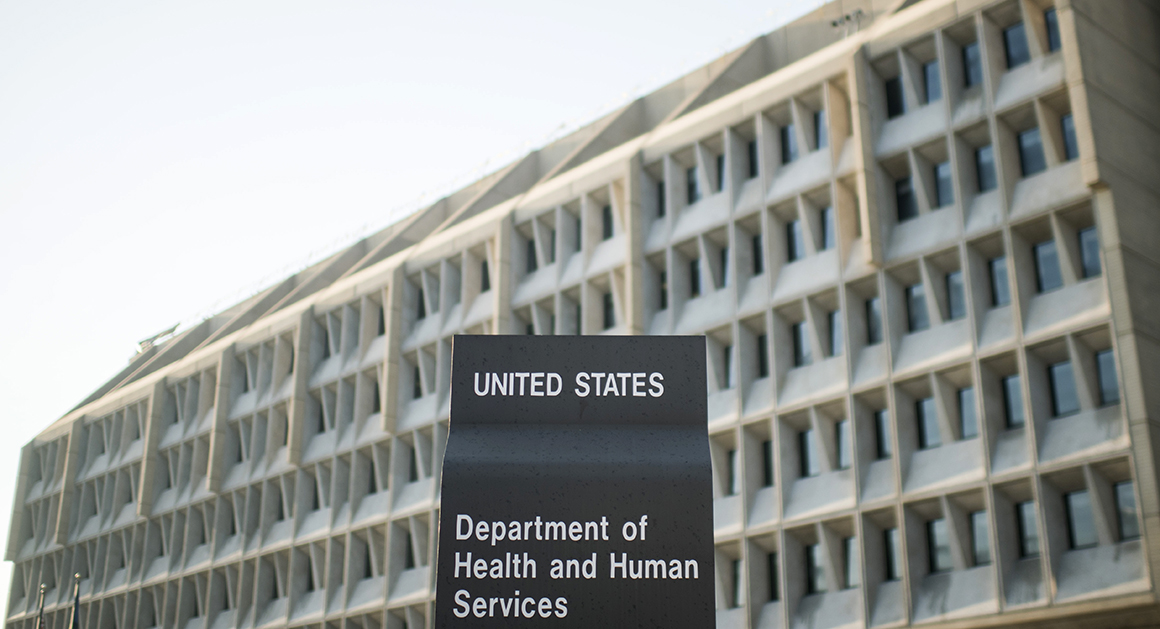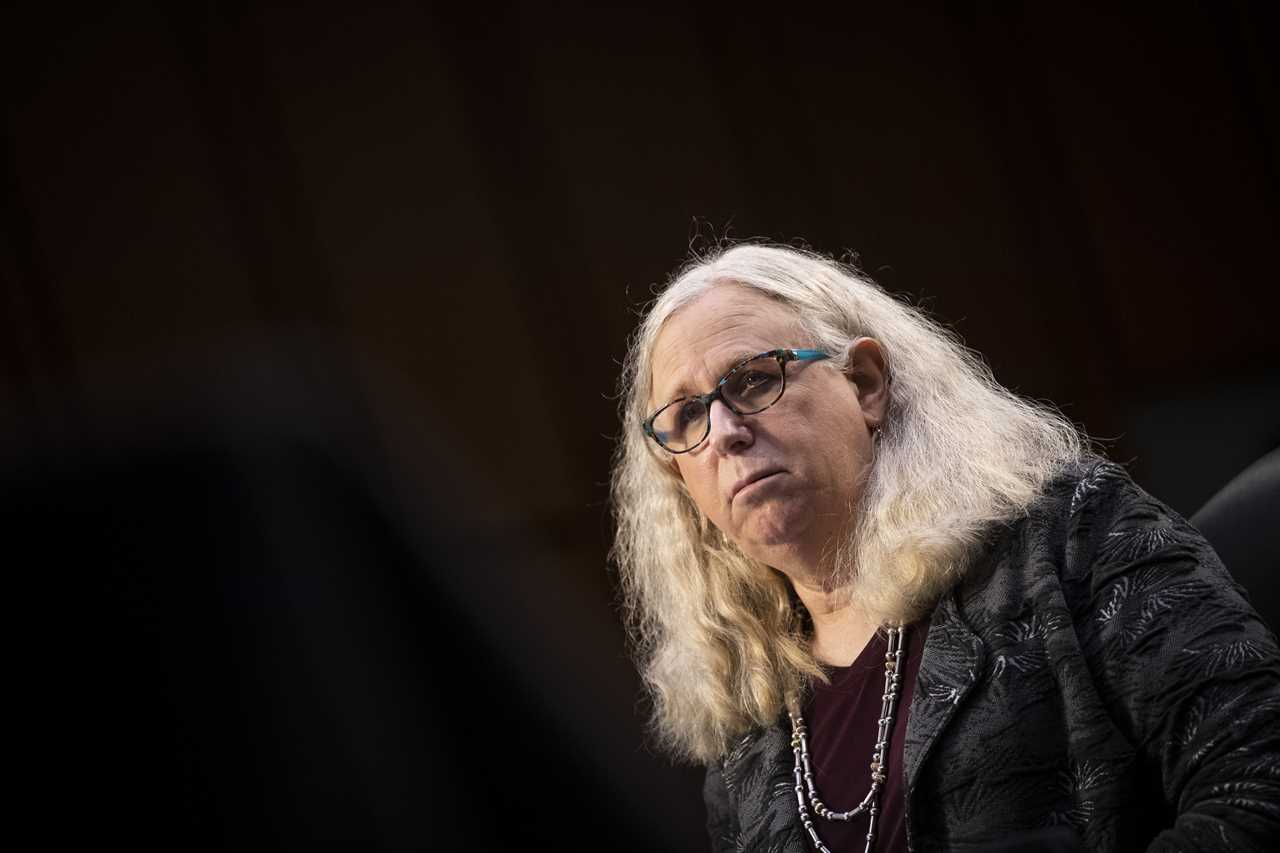
When a record-breaking heat wave hit Seattle last summer, it felt like the first few days of the pandemic all over again. Hospitals scrambled to secure ventilators for people whose lungs and hearts had stopped due to rising body temperatures. One emergency room physician texted another: “We are in crisis.”
That emergency — a three-day heat wave that saw hundreds of deaths in the Pacific Northwest as temperatures climbed to record highs — is one in a series of increasingly erratic weather disasters leading to a cascade of health problems as climate change worsens, Biden administration officials argue.
But governments have not traditionally seen rising temperatures as a health issue despite the critical role they play in everything from more frequent and serious weather disasters to rising asthma rates from poor air quality. There remains no dedicated funding for President Joe Biden’s climate office inside the Health and Human Services Department despite his administration’s relatively small request for $3 million to staff eight people.
Without any money or a permanent staff to address the public health effects of global warming, low-income and elderly populations are likely to suffer devastating consequences from weather emergencies to chronic illnesses, leading to preventable deaths and costing the government billions of dollars.
Meanwhile, city and state public health officials say it will take hundreds of billions of dollars to curb the climate-related health problems playing out nationwide.
“Climate change is the single greatest health threat to humanity,” said Jeffrey Duchin, a health officer for Seattle and King County. “And I've been preoccupied with Covid over the last two years.”
HHS established The Office of Climate Change and Health Equity in September and assigned employees from other parts of the department to sketch out the office’s priorities as it waited for funding that was supposed to come in this year’s budget. That package passed last month but with the $3 million request dropped among scores of other provisions — like bulked-up Covid-19 relief — as lawmakers sought to whittle down costs.
“I believe that some have a sense of urgency about climate change, and of course, others don’t,” said HHS Assistant Secretary for Health Rachel Levine, who is overseeing the climate change office and hopes to build momentum for more funding in subsequent years.

Levine traveled to Seattle in March to meet with Duchin and other public health officials, first responders and community advocates. The representatives painted a dire picture, saying their county health systems — the first to report coronavirus cases in the U.S. in February 2020 — were ill-prepared for a second crisis bringing heat stroke, wildfires and the prospect of moving critical patients out of at-risk hospitals in those scenarios.
Minding ‘cascading’ effects
Nearly a year and a half after the first coronavirus case, a new emergency hit the same vulnerable, elderly and underserved populations devastated by the ongoing pandemic, said emergency room physician Steven Mitchell, director of downtown Seattle’s Harborview Medical Center Emergency Department and a leader of efforts by city hospitals to level treatment capacity during the pandemic.
Another area hospital called Harborview to ask for ventilators. Providers in southern Seattle were especially inundated with patients from surrounding low-income neighborhoods without air conditioning. Meanwhile, the extreme heat drove people indoors at a time when public health officials were stressing social distancing to avoid Covid infection.
“Thankfully we were sort of between Covid surges, so our system had a little bit of capacity,” Mitchell said. “Because it could have been that much more overwhelming, when you stack one disaster on top of another disaster.”
For Washington, which recorded 100 heat-related deaths following the heat wave, it was one of the deadliest weather events in the state’s history. Oregon and the western coast of Canada logged even more fatalities, with some forecasts estimating more than 1,000 people died of heat-related illnesses during and shortly after the late June emergency. Most of them were elderly and low-income people, reflecting the larger trends of climate change and health impacts across the globe.
“Heat is easy for people to get because they see it. But they may not actually recognize how devastating it is to a community,” said Georges Benjamin, executive director of the American Public Health Association and former secretary of Maryland’s Department of Health and Mental Hygiene.
Benjamin described an urban “heat island” effect in which city areas with few green spaces — often minority communities — saw higher temperatures and poorer air quality than nearby areas, along with more cardiovascular problems and asthma. One Johns Hopkins study in Baltimore sought to link increased crime with hotter days.
The health costs of climate change and ensuing air pollution “already far exceed” $800 billion annually between premature deaths, medical costs, related medicines and indirect tolls such as home and community instability, lost jobs and mental health harms, according to a 2021 analysis by the Medical Society Consortium on Climate and Health, the Natural Resources Defense Council and Wisconsin Health Professional for Climate Action.
Some of these factors are more directly measurable than others, but even those are hard to quantify. For instance, hundreds of Americans died last summer from heat stroke causing cardiac arrest, brain damage and other organ failure. Still more died from drowning as they attempted to cool off. Emergency workers and hospital staff were stretched thin between the heat emergency and coronavirus cases.
These are the “cascading” impacts of climate change-related health issues, as Duchin and other public health experts refer to as the domino-like health and equity challenges springing up.
“Our health care system was already stressed from Covid-19, and then you have the added burden of a climate-induced weather event that adds additional stress both to our emergency medical services and to our health care delivery system,” he said. “We really need to pay more attention to bolstering the resilience of our health care system to deal with these multiple threats.”
The funding challenge
Without funding, the federal health department’s climate employees — which include Environmental Defense Fund scientists John Balbus and Arsenio Mataka, who advised now-HHS Secretary Xavier Becerra on environmental policy when he was California attorney general — have largely focused on meeting with various federal agencies to form the office’s goals and stitch together the scope of the problem.
Levine said the group plans to collate data around the health impact of climate change, some of which exists in the Environmental Protection Agency, Centers for Disease Control and Prevention or federal care programs like Medicare and Medicaid, but needs to be assessed through a new lens. Other data lay in patchwork state and local health systems and hospital records.
With funding, Levine hopes the climate office can move into education and policy efforts. One key goal is pushing hospitals and health networks to reduce their carbon emissions, which together with other health sector businesses like drug and device manufacturers account for an estimated 8.5 percent of the U.S.' total footprint.
That’s a sizable goal that HHS does not actually regulate, though Levine insists they can use the “bully pulpit” to push businesses toward greener practices. Other public health experts closely advising the agency suggest federal programs like Medicare and Medicaid could even tie payment reforms to climate goals, incentivizing telehealth, home care and preventive medicine that all have lower footprints than clinical care and high-cost tests or operations.
“This gives us the chance to be looking at the way we care for people as well,” said National Academy of Medicine President Victor Dzau, who has led working groups with Levine, public health experts and industry executives. Liz Fowler, head of The Center for Medicare and Medicaid Innovation, which tests out different payment models, has been part of those groups.
Other agencies and state governments could also build carbon footprint requirements into tax incentives and facility accreditations, said APHA’s Benjamin.
The carbon footprint plan would also be in line with Biden’s goal of halving the country’s greenhouse gas emissions by 2030 and transitioning to clean energy, a mission some environmental advocates are worried is already jeopardized by current efforts to lower high gas prices.
Still, administration officials and health experts are wary that pandemic fatigue and lawmakers’ anxiety about ballooning federal spending could slow down these goals. Congress has already slashed Covid-19 response funding that the White House said is essential for buying more vaccines, treatments and tests, and separately the health department has asked for $80 billion to fund pandemic preparedness efforts.
“People are naturally really challenged to do things about events that are in the future, even when they're given a lot of evidence that these things are going to happen,” said Duchin. “Which might just be our downfall.”
----------------------------------------
By: Sarah Owermohle
Title: 'Sense of urgency' for HHS climate change office
Sourced From: www.politico.com/news/2022/04/16/sense-of-urgency-for-hhs-climate-change-office-00025654
Published Date: Sat, 16 Apr 2022 06:01:00 EST
Did you miss our previous article...
https://consumernewsnetwork.com/politics-us/transphobia-claims-made-against-rights-of-nature-clinic






